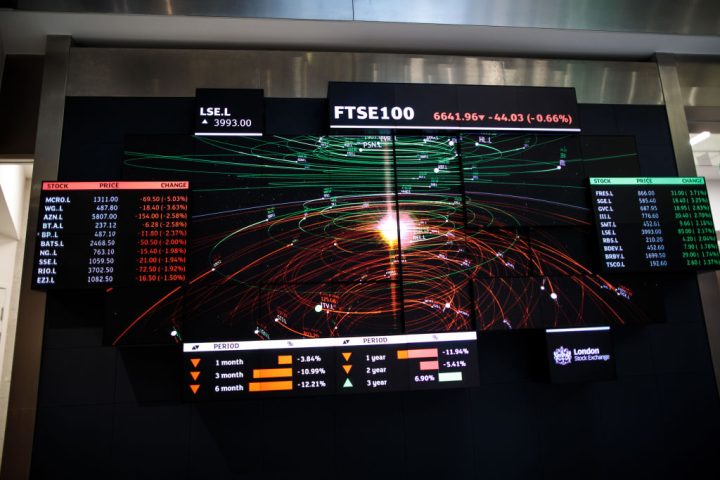It has finally happened. In trading on Tuesday afternoon, the UK’s FTSE 100 index finally closed in on an all-time high. It hit 8,015 points, itching above the previous record closing level of 8,014 set in February 2023 – even if it was still a whisker below the intra-day trading record of 8,043, also from February last year.
With stock markets rising around the world, at some point this week or perhaps next, the FTSE 100 will be setting fresh records daily. We may even be treated to one of those self-congratulatory tweets the Prime Minister, Rishi Sunak, specialises in. The trouble is, there is nothing to celebrate. In reality, the FTSE has been a dismal disappointment. Nothing will change that soon.
With inflation, record highs are inevitable. They are nothing to celebrate
Finally punching its way through the 8,000 barrier is a milestone of sorts. And yet, measured over a longer time period, it is barely an achievement. At the end of the great bull market of the 1990s, after rising strongly for years, the index closed the decade at 6,930. It has taken the best part of a quarter of a century for it to get from 7,000 to 8,000.
A comparison with other major markets is sobering. The tech-heavy Nasdaq has gone from 4,000 to 16,000 over the same period, while the more broadly based S&P 500 has gone from 1,500 to 5,200. Closer to home, Germany’s economy may not be in great shape right now, but the benchmark DAX index has still risen from 7,000 to 18,000. Even France’s CAC-40 has managed to rise from 6,000 to 8,000 – double the gains of the FTSE 100. By any measure you care to take, the London market has badly underperformed its peers. In reality, it should have hit at least 15,000 by now, and possibly 20,000.
There is little chance of that changing anytime soon. Taxes are already at a record high, and with a Labour government about to take power they will almost certainly go up even more. Indeed, the party may well steeply increase capital gains tax, which would hit the stock market hard. Meanwhile its plans for ‘directing’ pension fund money into start-ups and green industries won’t help the established giants of the main index.
The FTSE’s poor performance over so many years means London is now a relatively unattractive place to list equities, and most high-growth companies prefer New York instead. Added to this, there is little sign of the UK’s dismal growth rate accelerating, leading to the improved performance of domestic stocks. Sure, with interest rates likely to come down over the summer, equities will get a boost. It would be a shock if the FTSE 100 was not at least hitting 8,500 by the time everyone leaves for the holidays. Even so, with inflation, record highs are inevitable. They are nothing to celebrate – in fact, this one is simply a painful reminder of how dismal the UK stock market has become.






Comments